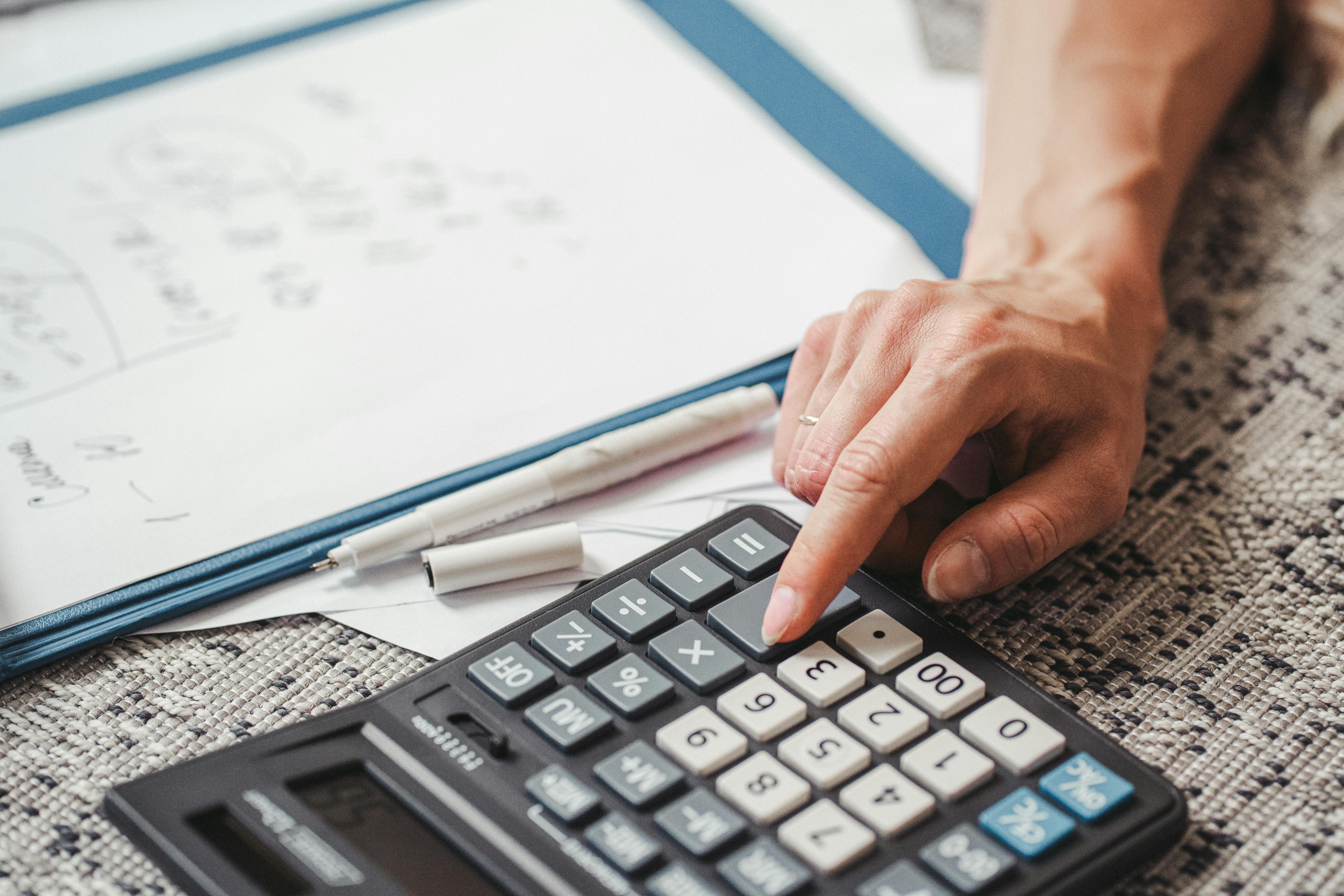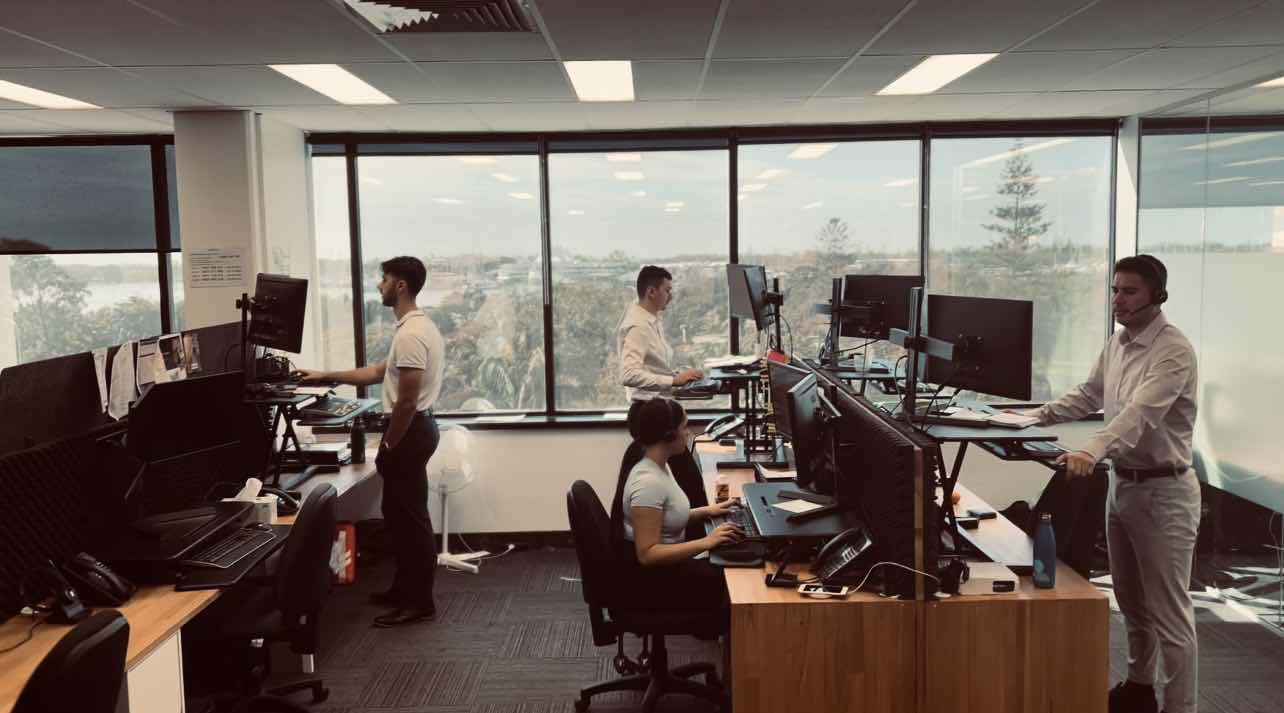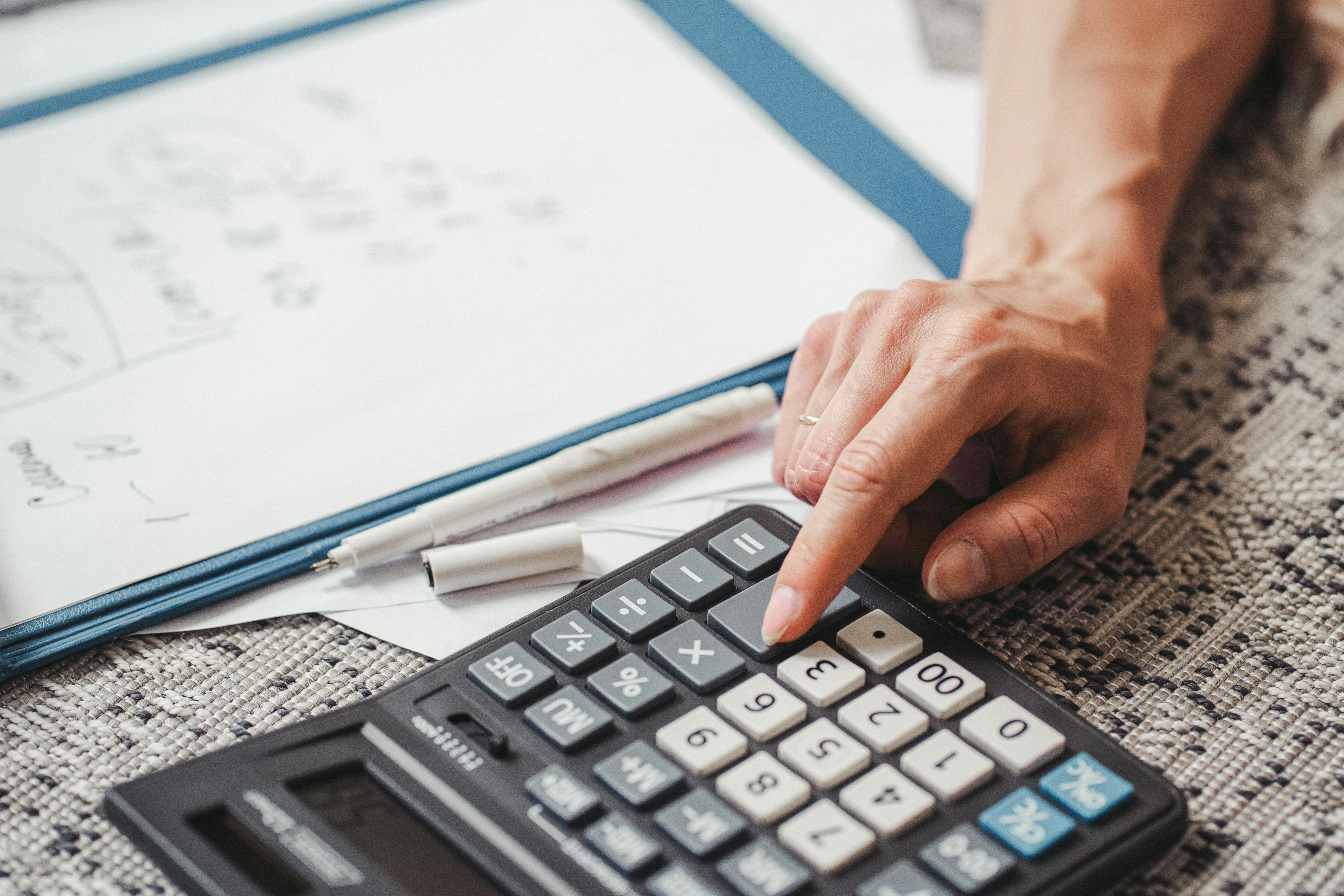
Financial Services
/
Accounting for Businesses
Accounting for Businesses
Accounting for Businesses
/
Business Tax Accounting
Business accountants you can rely on
Unlock tax benefits, protect assets and fuel business growth.

Accounting services that scale with you
New venture, restructure or preparing to scale? No matter your stage of business, we’ll evaluate your goals and finances to ensure your business is geared for success.
Structure your business for maximum performance
Don’t let your business structure hold back your profit potential. Gain the flexibility to grow while protecting your assets with advice from our business accountants.
- Minimise risks to the business
- Set up your business for future transition of ownership, if needed
- Establish the right business structure to secure funding or equity
- Protect your business assets
- Minimise compliance costs
- Operate more efficiently
- Maximise your tax efficiencies
- Maximise your wealth
- Achieve your business and personal goals.


Consolidating Loans
Reducing your monthly payments can provide near-term relief but may cost you more in total interest. Let’s make sure you’re doing the right thing with your hard-earned money.
- Focus on High-Interest Loans – A good strategy is to eliminate the debt with the highest cost first. Once this is paid off, focus on the next highest interest rate. This approach lets you make minimum payments across all accounts while reducing your total debt. SOMETHING ABOUT US
- Negotiate For Lower Interest Rates – Reducing your mortgage interest rate can save money and increase your cash flow to pay off higher-interest debts, such as a car loan. Get in touch with your bank to find out what’s possible.
- Use Non-Essential Assets – Think about all your assets, such as your car. If you trade it in for a cheaper model, the cash difference can help pay off your debt and reduce your annual expenditure. The same goes for selling your boat, bike or jet ski. Take care of your debt now so you can enjoy the toys later.
- Use Tax Refund & Extra Cash To Pay Debt – All cash outside your paycheck, such as tax returns, bonuses, inheritances, and birthday money, is known as windfall money. It’s easy to spend it, but it’s smarter to use it to pay off your debt. We know it’s tough, but we’re here to back you every step of the way.
- Credit Card Balance Transfer – Get ahead on your repayments by transferring your credit card debt to a 0% balance transfer credit card. These cards provide 16-24 months of interest-free on-balance transfers. We can help you find out if you qualify and get rid of your debt for good.
- Decrease Your Expenses – Live within your means by sticking to a budget. Set up automatic payments for bills and debts on payday and if it’s tempting to overspend, try using cash. Only take out what you need each week to take control of your debt and work towards your goals.

Tax Minimisation Strategies
Because there is no one-size-fits-all approach to tax planning, it’s important to discuss your personal circumstances with a qualified professional to determine the best course of action.
By reducing your taxable income and spending less on taxes, you’ll be able to keep more money in your pocket, ultimately contributing to your wealth protection goals. Tax is unavoidable. It affects every aspect of your personal finances—from income to investments, superannuation, home loans, assets, and the wealth you leave for future generations.
It is possible to take steps immediately to avoid paying unnecessary taxes at the end of the financial year. These tips may not be suitable for everyone but are worth considering as an overall financial strategy. Discuss them with a tax accountant if you are unsure.
- Maximising Your Allowable Tax Deductions – If you are an employee, you may be able to claim a tax deduction for certain work-related expenses. To do so, you must have spent the money out of your own funds and not been reimbursed by your employer. The expenses must relate to your earnings as an employee; for example, if you travel to work every day, you may be able to claim the cost of public transportation as a deduction. Keep track of all expenses in case they are questioned by the ATO.
Expenses you may be able to claim:
- Car expenses and travel costs, be sure to keep receipts, as they’re necessary for claiming reimbursements.
- You may be able to claim a deduction for occupation-specific clothing, uniforms and protective gear.
- Because of COVID-19, there are special rules this year for employees working from home. To claim the ATO special rate, you will need records of the hours you have worked from home.
- Self-education expenses-some employment-related deduction expenses can be claimed on your return.
- Tools and equipment, items related to your work that are necessary for you to do your job well, may be tax-deductible. Examples include small tools of the trade, protective gear, professional references, and work-related laptops.
- You can minimise the CGT you pay by:
- Holding an asset for more than 12 months
- If you make a capital gain from the sale of assets held for more than 12 months, you may be entitled to a 50% discount on CGT. For example, if you sell shares that you have held for longer than 12 months and you make a capital gain of $3,000, you will only be charged CGT on $1,500 (not the $3,000 gain that you actually made).
- Offset your capital gain with capital losses
- You can use capital gains from prior or current years to reduce a capital gain and therefore the amount of CGT you need to pay.
- Increasing your asset cost base
- A reduction in the cost base is a reduction in the capital gain, and therefore CGT liability. You are entitled to include not only the purchase price of an asset in your cost base, but also associated costs of acquiring and disposing of it (such as real estate agent fees), and any holding costs (such as rates, repairs and insurance premiums).
- Revalue your property before renting it out
- If you decide to use your residential property as an investment property, get it valued before renting it out. You will only be liable for capital gains tax on the gain you make from that point forward, not on the gain from when you first bought the property.
- Utilise small business CGT concessions
- If you are a small business owner and sell a depreciating asset, you may be eligible for several small business CGT concessions.
- Seek professional tax advice – Australian tax law is complex. It’s important to understand that tax minimisation is a legal and sensible financial strategy, while tax avoidance is not and can carry heavy penalties.
- Selecting the correct structure – Every business, investment, and job opportunity is different, so you will need to work out which structure is best for you to operate or invest through. Is it a Company or a Trust, an Individual or a Partnership, or maybe even through your Self-Managed Super Fund? Choosing the correct structure is vital for wealth protection and minimizing your tax bill.
The tax rate that is applied to a taxable income amongst each entity differs considerably. The individual and the partnership is from 0% to 47%, the company rate is between 26% and 30%. The Trust rate is from 0% to 47%, and the Self-Managed Superfund is 15%
- Plan The Timing Of Income & Expenses – To reduce your tax liability, you should plan the timing of your income and expenses. This includes things like interest on savings accounts, dividends from shares and rent payments. If you receive income at different times over the course of the year, you may want to consider having more of it paid at a time when its value is greater. On the flip side, if you need to claim certain expenses at a certain time, there is a possibility that this could be claimed in advance.
- Deferring income – Deferring income is one of the most common strategies for tax minimisation and is often undertaken by larger companies with stable cash flows. By deferring income, you can pay less tax in the current financial year and receive a smaller refund from the ATO. However, this process may affect your return next year as the money becomes due earlier. In addition, if you need to access the funds for business purposes before they are taxed, you risk paying additional tax if it’s withdrawn before 1 July.
What makes us different?

Dedicated Client Services Officer
Speak to one specialist who understands you and your business inside out.

Personalised, scalable solutions
As your financial needs grow, so does our support. Count on our comprehensive service to put your goals first at every step.

One service, many touchpoints
Simplify your finances with tax, accounting, and financial planning under one roof.
Transparent pricing, services, and timing
Know exactly what’s included and when to expect results.
Responsive communication
We’re available anytime, whether in-person, via video, email, or phone.
Wealth, accounting and business specialists
With decades of experience, we’ve seen it all. Rely on our financial expertise to build a better future for you and your family.
Make sense of every cent.
OVA is your go-to for tax, accounting, and finances—supporting the Gold Coast and beyond.
How we’ve helped our clients.
Shane Q.
Happy Customer
Troy R.
Happy Customer
Jenny B.
Happy Customer
Tim H.
Happy Customer
Gabriel A.
Happy Customer
Sharon M.
Happy Customer
Drew P.
Happy Customer
Lee S.
Happy Customer
Zhun B.
Happy Customer
Nathyn C.
Happy Customer
Our most frequently asked questions.
When you reach your preservation age and retire, you can access your super to fund your retirement.
You can also access your super:
- when you turn 65 years old
- under the transition to retirement rules (if you are eligible), while you continue to work.
You don’t have to cash out your super just because you’ve reached a certain age, however, you need to check if the rules of your particular super fund specify otherwise.
Your preservation age is not the same as your pension age. Your preservation age is the age you must reach before you can access your super and depends on when you were born.
The tax payable on super benefits depends on a number of things, including:
- your age
- the amount of the payment
- whether you receive your super benefits as a super income stream or a super lump sum
- whether your super comes from a taxed or untaxed source.
Some super benefits have a tax-free component and a taxable component. The tax-free component generally includes:
- amounts you have contributed to your super fund without claiming those amounts as a tax deduction
- certain other tax-free amounts you may have rolled into your super fund.
ASFA estimates that the lump sum needed at retirement to support a comfortable lifestyle is $640,000 for a couple and $545,000 for a single person. This assumes a partial Age Pension.
ASFA estimates that a modest lifestyle, which covers the basics, is mostly met by the Age Pension. They estimate the lump sum needed to support a modest lifestyle for a single or couple is $70,000.
However, this might not be enough for you, it is important to seek advice on this with a Financial Planner, the team at OakView Financial can sit down with you and work out your required balance to meet your retirement needs.
Non-concessional contributions have the advantage of zero tax on the money deposited into your super. The earnings will be taxed at the rate of 15% like the rest of your superannuation and will be tax-free upon retirement. There are caps to how much you can contribute each year and there is also a bring-forward arrangement you can utilise.
- 3 times the annual non-concessional contributions cap over 3 years (that is, $330,000) if your total super balance on 30 June of the previous financial year is less than $1.48 million
- 2 times the annual cap over 2 years (that is, $220,000) if your total super balance on 30 June of the previous financial year is above $1.48 million and less than $1.59 million
- nil ($0) if your total super balance is $1.59 million or above.
These limits are based on the:
- non-concessional contribution cap of $110,000
- total super balance in relation to the general transfer balance cap of $1.7 million.
To qualify for the full or partial Age Pension you need to meet the Income and Asset tests limits:
Income Test – you and your partner’s income from all sources are assessed. This includes financial assets such as superannuation. To work out how much income your financial assets produce, the Government use deeming. Pensions have income and asset limits. If you’re over these limits, you get a lower pension.
Asset Test – all asset types are assessed as part of the assets test. How much you are paid depends on the value of your assets and if you’re in a relationship. There are limits on your total assets and the Department of Social Services reviews these limits twice a year.
Your assets include any property or possessions you own in full, in part, or have an interest in. This includes:
- assets held outside Australia
- debts owed to you.
To be eligible for Age Pension you must be Age Pension age and meet some other rules.
On 1 July 2021, Age Pension age increased to 66 years and 6 months for people born from 1 July 1955 to 31 December 1956, inclusive.
If your birthdate is on or after 1 January 1957, you’ll have to wait until you turn 67. This will be the Age Pension age from 1 July 2023.
The Department of Social Services reviews the eligibility for the Age Pension each year, increasing the upper limits to scale with inflation. Australian Parliament may also introduce policy changes to the limits, it is best to review your retirement strategy with your Financial Planner each year to ensure you are always taking advantage of the best outcome.
Sort your money out.
Book an obligation-free call today to secure your financial freedom tomorrow.



